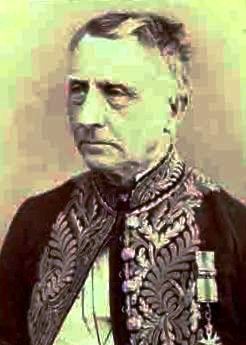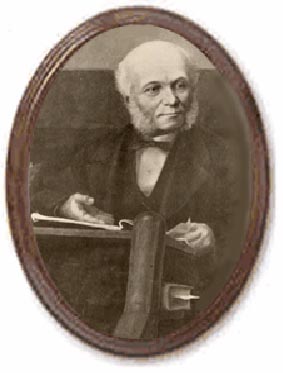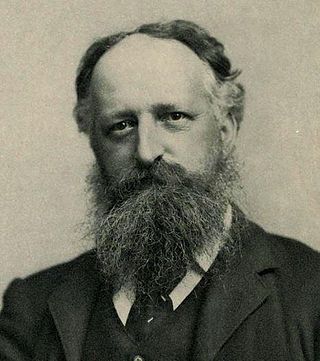
John Xavier Merriman was a South African politician who served as the eleventh Prime Minister of the Cape Colony from 1908 to 1910. He was the last prime minister of the Cape Colony before the formation of the Union of South Africa in 1910.

The Cape Argus is a daily newspaper co-founded in 1857 by Saul Solomon and published by Sekunjalo in Cape Town, South Africa. It is commonly referred to as The Argus.

Sir John Gordon Sprigg, was an English-born colonial administrator and politician who served as prime minister of the Cape Colony on four different occasions.

Sir John Charles Molteno was a South African politician and businessman who served as the first Prime Minister of the Cape Colony from 1872 to 1878.

Sir Richard Southey was a British colonial administrator, cabinet minister and landowner in South Africa.

John Fairbairn was a newspaper proprietor, educator, financier and politician of the Cape Colony.

Saul Solomon was an influential liberal politician of the Cape Colony, a British colony in what is now South Africa. Solomon was an important member of the movement for responsible government and an opponent of Lord Carnarvon's Confederation scheme.

John ("Jock") Paterson was a prominent politician and successful businessman of the Cape Colony, and had a great influence on the development of Port Elizabeth where he was based. He ran newspapers, established the Grey Institute and played a significant role in founding South Africa's Standard Bank.

Charles Pacalt Brownlee was a politician and writer of the Cape Colony. He was the first Secretary for Native Affairs in the Cape.

John Charles Molteno Jr. M.L.A., was a South African exporter and Member of Parliament.

William Porter was attorney-general of the Cape Colony and a drafter of its first constitution in 1854.

The Parliament of the Cape of Good Hope functioned as the legislature of the Cape Colony, from its founding in 1853, until the creation of the Union of South Africa in 1910, when it was dissolved and the Parliament of South Africa was established. It consisted of the House of Assembly and the legislative council.

The South African Commercial Advertiser was South Africa's first independent newspaper and started publication in Cape Town on 7 January 1824. It was banned between 5 May 1824 and 31 August 1825, and between 10 March 1827 and 3 October 1828, by order of the Governor at the Cape, Lord Charles Somerset.

The Zingari was an early weekly newspaper of the Cape Colony, which printed in Cape Town from 1870 until 1875. It was a low-brow, semi-humorous paper that never attained a wide circulation, but was notable for featuring some of the first satirical cartoons in southern Africa. It was also an overtly pro-imperialist publication, appealing to the right-wing of the political spectrum of the time.

The Lantern was a weekly newspaper published in the Cape Colony between 1877 and c. 1889. Featuring a populist and pro-imperial slant, The Lantern was one of the first South African newspapers to publish political cartoons. For the duration of the paper's existence, it remained dwarfed in popularity by more well-established papers such as the Cape Argus and The Times.

Francis Reginald Statham (1844–1908) was a writer, composer and newspaper editor of Great Britain and southern Africa. He was notable for his radical anti-imperialist writings and for the controversy that was attached to him throughout his life. The Bishop and political leader John Colenso famously summed him up as "a keen knife, liable to shut upon the hand that used it, and therefore to be used with caution".
The Cape Post (1879-1880) was a newspaper that briefly operated in the Cape Colony.

Patrick McLoughlin was an influential newspaper editor of the British Cape Colony, in what is now South Africa.
Francis Joseph Dormer was an influential journalist and newspaper editor in southern Africa.

The Eastern Province Separatist League was a loose political movement of the 19th century Cape Colony. It fought not for independence, but for a separate colony in the eastern half of the Cape Colony independent from the Cape government, with a more restrictive political system and an expansionist policy eastwards against the remaining independent Xhosa states. It was crushed in the 1870s, and many of its members later moved to the new pro-imperialist, Rhodesian “progressive party”.


















